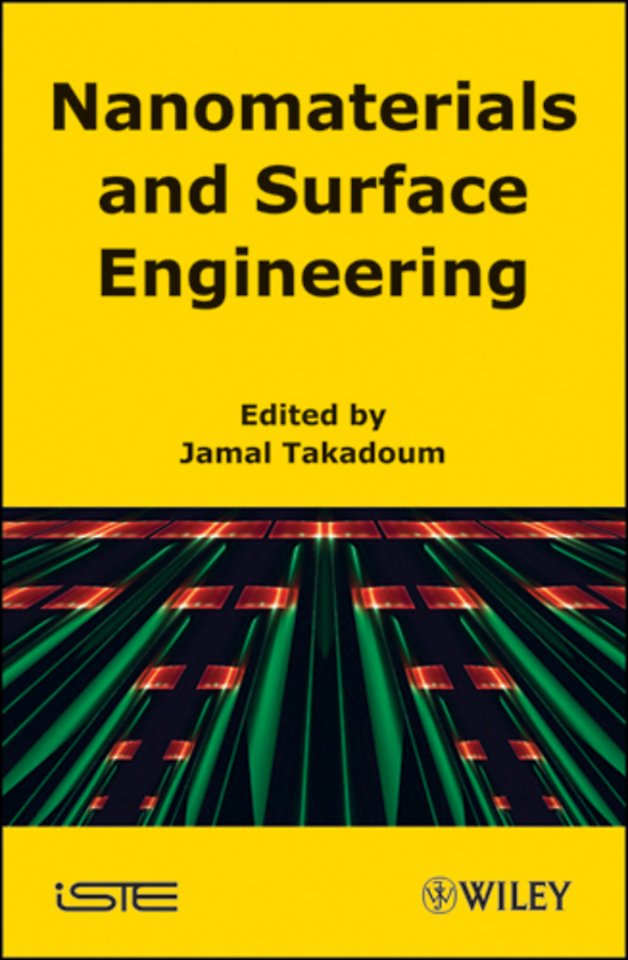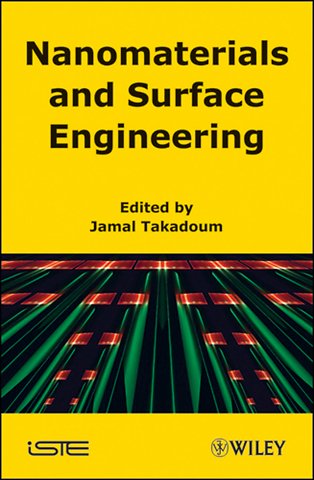Nanomaterials and Surface Engineering
Samenvatting
This book covers a wide range of topics that address the main areas of interest to scientists, engineers, and students concerned with the synthesis, characterization and applications of nanomaterials. Development techniques, properties, and examples of industrial applications are all widely represented as they apply to various nanostructured materials including nanocomposites and multilayered nanometric coatings. It is recommended to anyone working in the field of nanomaterials, especially in connection with the functionalization and engineering of surfaces.
Specificaties
Inhoudsopgave
<p>Chapter 1. Architecture of Thin Solid Films by the GLAD Technique 1<br /> Nicolas MARTIN, Kevin ROBBIE and Luc CARPENTIER</p>
<p>1.1. Introduction 1</p>
<p>1.2. The GLAD technique 2</p>
<p>1.3. Resulting properties 8</p>
<p>1.4. Conclusions and outlooks 23</p>
<p>1.5. Bibliography 24</p>
<p>Chapter 2. Transparent Polymer Nanocomposites: A New Class of Functional Materials 31<br /> Anne CHRISTMANN, Claire LONGUET and José–Marie LOPEZ CUESTA</p>
<p>2.1. Introduction 31</p>
<p>2.2. Nanoparticle modifications 32</p>
<p>2.3. Nanoparticles and nanocomposites 39</p>
<p>2.4. Conclusion 45</p>
<p>2.5. Bibliography 47</p>
<p>Chapter 3. Nanostructures by Ion Irradiation 53<br /> Jean–Claude PIVIN</p>
<p>3.1. Introduction 53</p>
<p>3.2. Physical bases 55</p>
<p>3.3. Nanostructures produced in ballistic regime 59</p>
<p>3.4. Nanostructures produced in electronic slowing down regime 68</p>
<p>3.5. Conclusions 76</p>
<p>3.6. Appendix: basic formula of ion stopping 77</p>
<p>3.7. Bibliography 82</p>
<p>Chapter 4. Microencapsulation 89<br /> Claude ROQUES–CARMES and Christine MILLOT</p>
<p>4.1. Introduction 89</p>
<p>4.2. The processes of microencapsulation 91</p>
<p>4.3. Kinetics of release 100</p>
<p>4.4. Conclusion 105</p>
<p>4.5. Bibliography 107</p>
<p>Chapter 5. Decorative PVD Coatings 109<br /> Raymond CONSTANTIN, Pierre–Albert STEINMANN and Christian MANASTERSKI</p>
<p>5.1. Introduction 109</p>
<p>5.2. Concept of color 110</p>
<p>5.3. Representation and measurement of color 112</p>
<p>5.4. Golden PVD coatings 113</p>
<p>5.5. Gray color PVD coatings 132</p>
<p>5.6. Black color PVD coatings 138</p>
<p>5.7. Blue color PVD coatings 145</p>
<p>5.8. PVD coatings with interferential color 145</p>
<p>5.9. Decorative PVD coatings and corrosion resistance 150</p>
<p>5.10. Bibliography 155</p>
<p>Chapter 6. Microwave Chemistry and Nanomaterials: From Laboratory to Pilot Plant 163<br /> Didier STUERGA and Thierry CAILLOT</p>
<p>6.1. Introduction 163</p>
<p>6.2. General context 163</p>
<p>6.3. Microwave nanomaterials: from single oxides to metallic clusters 167</p>
<p>6.4. Microwave and inorganic condensation processes 182</p>
<p>6.5. The RAMO system and the MIT process 186</p>
<p>6.6. From laboratory to pilot 191</p>
<p>6.7. Bibliography 192</p>
<p>Chapter 7. Aluminum–Based Nanostructured Coatings Deposited by Magnetron Sputtering for Corrosion Protection of Steels 207<br /> Frédéric SANCHETTE, Cédric DUCROS and Alain BILLARD</p>
<p>7.1. Introduction 207</p>
<p>7.2. Aluminum–based nanostructured coatings deposited by magnetron sputtering for corrosion protection of steels 208</p>
<p>7.3. Conclusion 224</p>
<p>7.4. Bibliography 224</p>
<p>Chapter 8. Nanolayered Hard Coatings for Mechanical Applications 227<br /> Frédéric SANCHETTE, Cédric DUCROS and Guillaume RAVEL</p>
<p>8.1. Introduction 227</p>
<p>8.2. Towards an ultrahard coating nanostructuring of transition–elements nitrides obtained by cathodic arc evaporation 230</p>
<p>8.3. Towards a low friction coefficient coating: nanostructuring of carbon– and silicon–based materials elaborated by<br /> plasma enhanced chemical vapor deposition 240</p>
<p>8.4. Conclusion 243</p>
<p>8.5. Bibliography 243</p>
<p>Chapter 9. Plating of Nanocomposite Coatings 247<br /> Patrice BERÇOT and Jamal TAKADOUM</p>
<p>9.1. Introduction 247</p>
<p>9.2. Electrolytic co–deposition of metal/particles and modeling 248</p>
<p>9.3. Parameters of the electrolytic composite coatings 254</p>
<p>9.4. Characterization of the composite coatings 260</p>
<p>9.5. Domains of application of the composite coatings 263</p>
<p>9.6. Conclusion 263</p>
<p>9.7. Bibliography 264</p>
<p>Chapter 10. Nanostructured Coatings 271<br /> Guy BARET and Pierre Paul JOBERT</p>
<p>10.1. Introduction 271</p>
<p>10.2. Nanomaterials 272</p>
<p>10.3. Applications 278</p>
<p>10.4. Nanopowders: instructions for use 288</p>
<p>10.5. Economical aspects 290</p>
<p>10.6. Conclusion 291</p>
<p>10.7. Bibliography 291</p>
<p>Chapter 11. Characterization of Coatings: Hardness, Adherence and Internal Stresses 293<br /> Jamal TAKADOUM</p>
<p>11.1. Hardness 293</p>
<p>11.2. Coating adhesion 304</p>
<p>11.3. Residual stresses in coatings 315</p>
<p>11.4. Bibliography 323</p>
<p>Chapter 12. High Temperature Oxidation Resistance of Nanocomposite Coatings 329<br /> David PILLOUD and Jean–François PIERSON</p>
<p>12.1. Introduction 329</p>
<p>12.2. Nanocomposite coating concept 330</p>
<p>12.3. Methods for nanocomposite coating elaboration 331</p>
<p>12.4. Structural characterization 333</p>
<p>12.5. High temperature oxidation behavior 336</p>
<p>12.6. Conclusion 343</p>
<p>12.7. Bibliography 344</p>
<p>List of Authors 349</p>
<p>Index 353</p>

